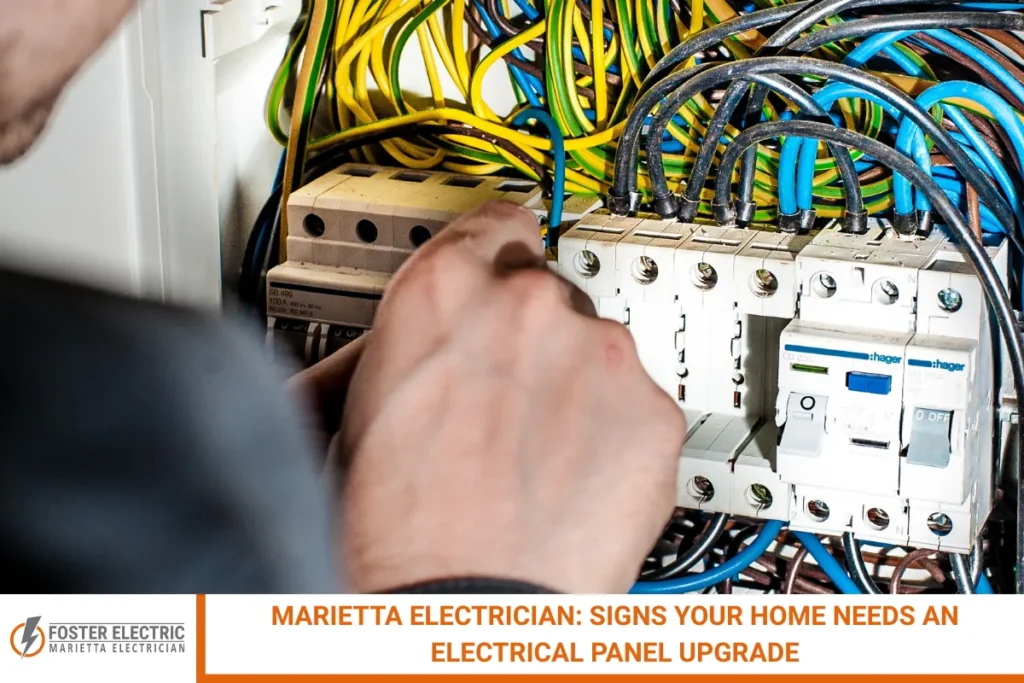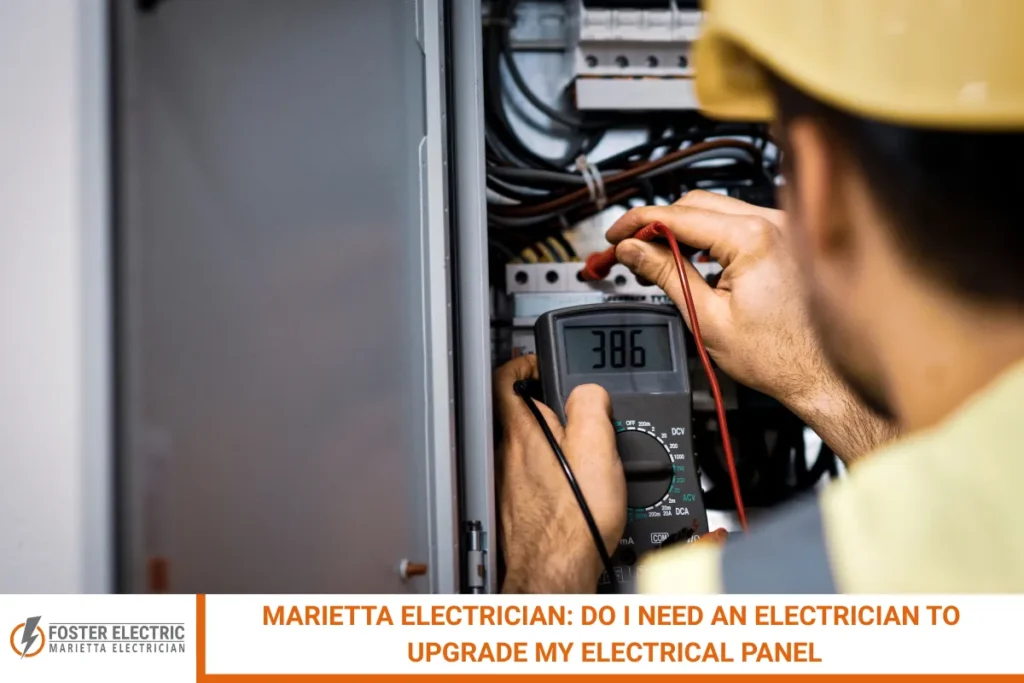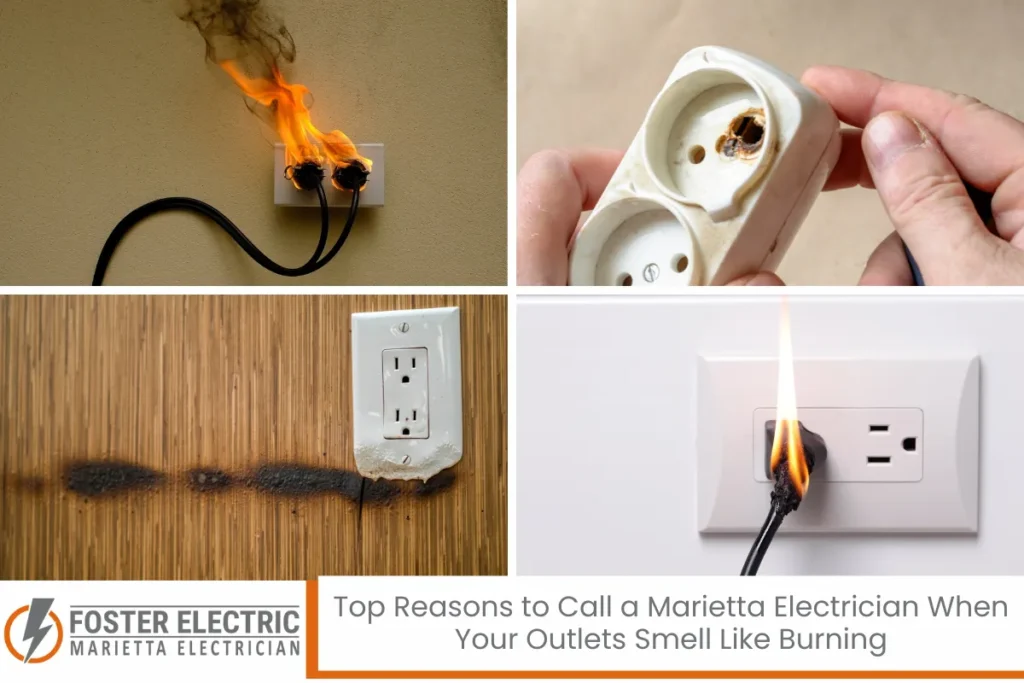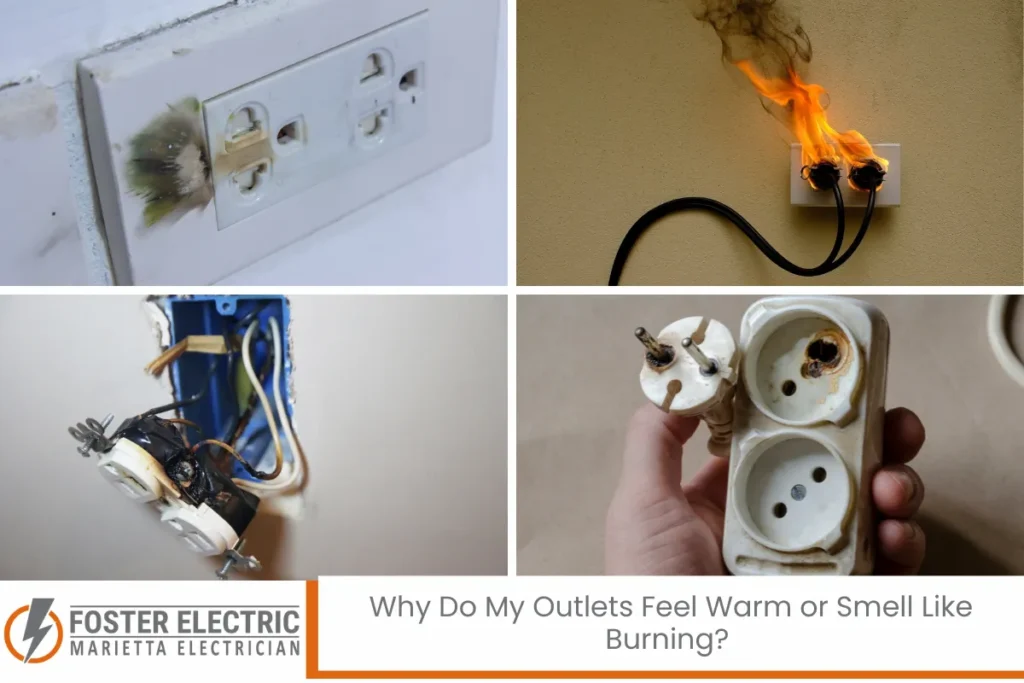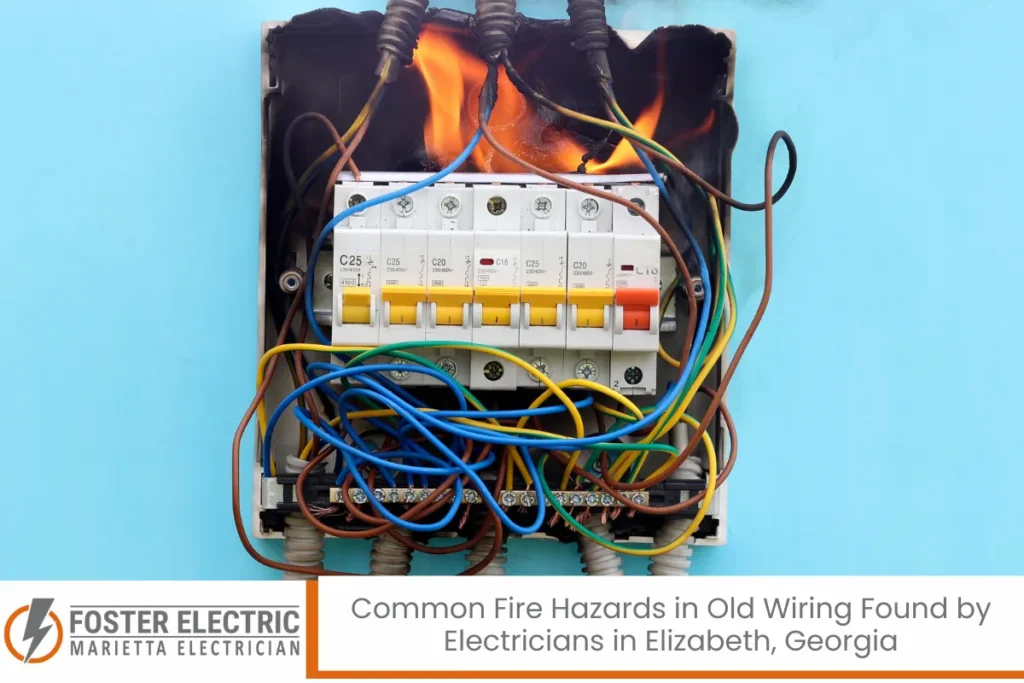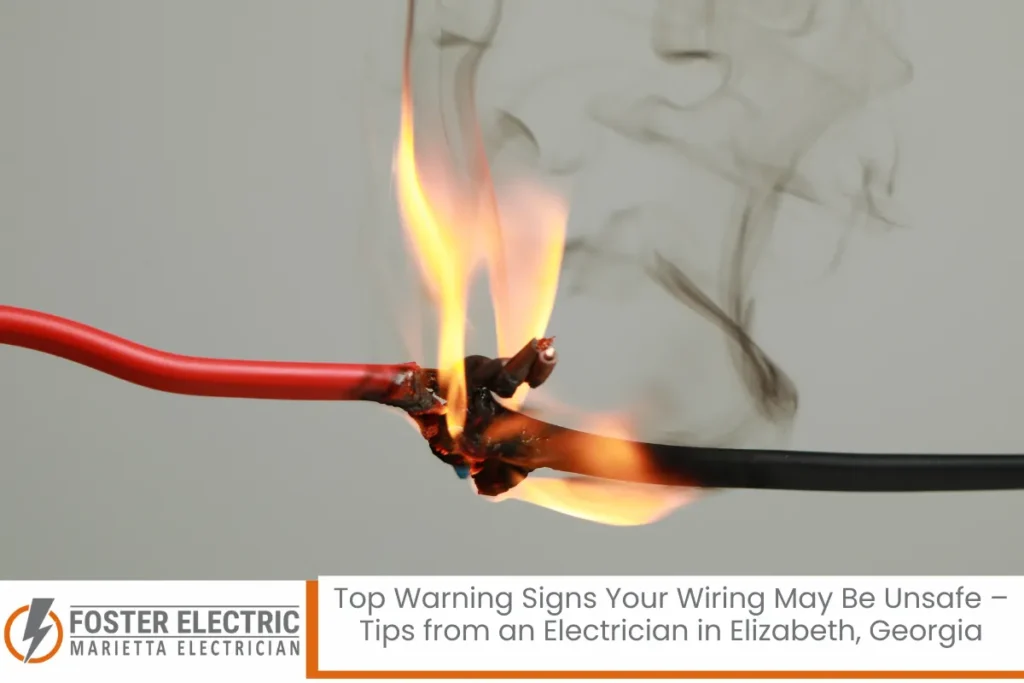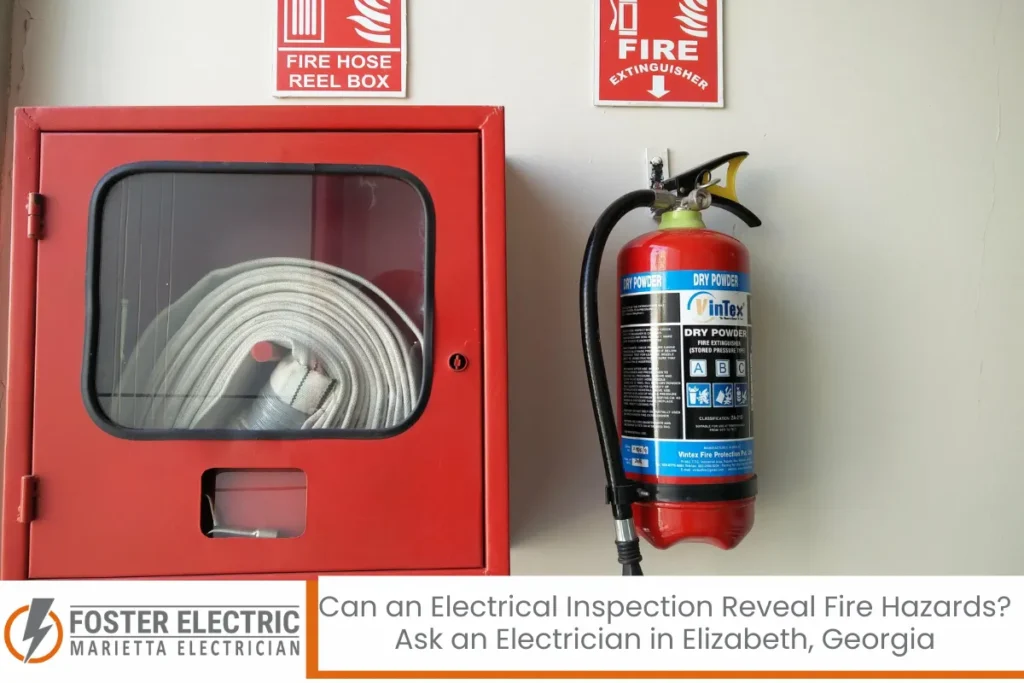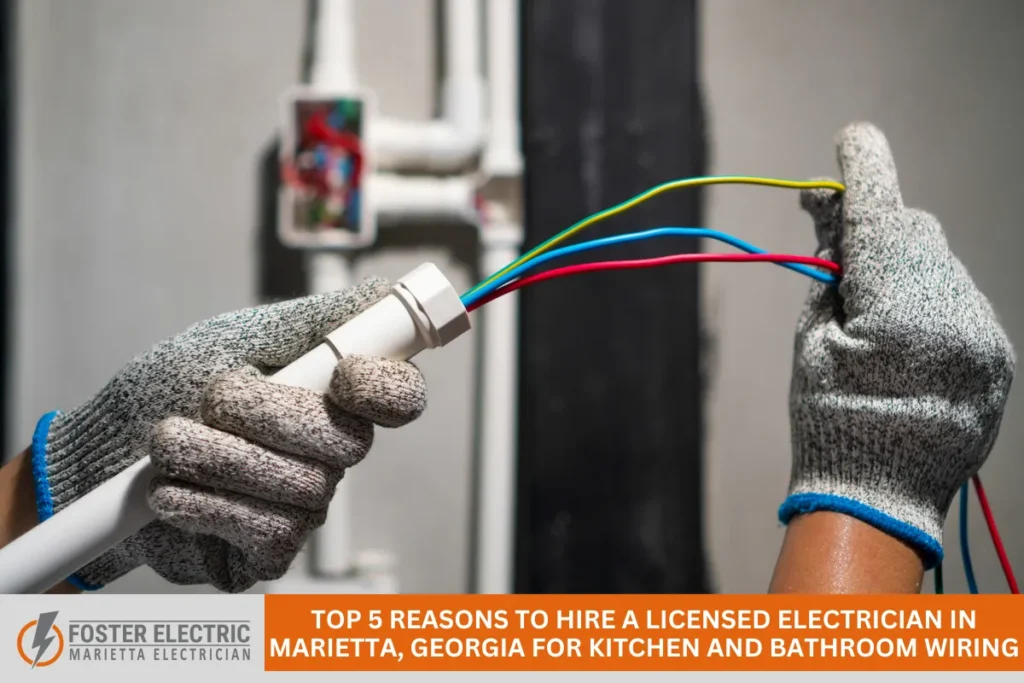Warm or burning outlets in your home or business can signal serious electrical issues, and contacting a professional electrician is often the safest way to address them. In Marietta, Georgia, these problems can stem from a variety of causes, from overloaded circuits to worn-out wiring. This article will break down the most common reasons outlets become warm or emit a burning smell, provide detailed explanations of each issue, and guide you on when it’s crucial to call a licensed electrician to protect your property and safety.
Understanding Electrical Problems: Warm or Burning Outlets
Electrical issues can manifest in various ways, and outlets that feel warm to the touch or emit a burning odor are among the most concerning. These problems often indicate underlying issues that can be hazardous if left unaddressed. There are several reasons why your outlet might become warm or smell like it’s burning. Each of these causes poses potential risks to your home’s electrical system, and it is essential to address them promptly to prevent further complications.
What Causes Outlets to Feel Warm?
Outlets are generally designed to handle the electrical flow within a home or office without overheating. However, certain circumstances can cause outlets to warm up. The most common causes include:
- Overloaded Circuits: This happens when too many appliances or devices are connected to a single circuit or outlet, exceeding the circuit’s capacity. Overloading an electrical circuit can result in excessive heat generation. The wires inside the outlet and the connected appliances may become hot, causing the outlet to feel warm or hot to the touch.
- Loose Wiring or Connections: If the wiring within the outlet is not properly connected or becomes loose over time, the electrical flow may not be steady. Loose connections create resistance in the circuit, which generates heat. The excess heat can cause outlets to feel warm or even produce a burning smell.
- Worn or Damaged Outlets: Over time, the internal components of outlets can wear down, especially in older homes. Worn-out outlets may not be able to handle the electrical load effectively, resulting in overheating. As the outlet continues to function in this state, it may emit a burning smell, indicating the need for replacement.
- Faulty Circuit Breakers: Circuit breakers are designed to cut off the flow of electricity in the event of an overload or short circuit. If a circuit breaker is faulty or outdated, it may fail to detect the problem and allow the outlet to continue drawing power, potentially leading to overheating.
Why Do Outlets Smell Like Burning?
The burning smell coming from an outlet is a strong indicator that something is wrong. Typically, this smell is a result of overheating components within the outlet or the wiring behind it. The common causes for this issue include:
- Overheated Electrical Wiring: When the electrical wiring within the outlet or in the walls becomes too hot, it can burn the insulation around the wires, resulting in a burning odor. Overheating can occur due to overloaded circuits or degraded wiring.
- Short Circuits: A short circuit occurs when an unintended connection forms between two wires in an electrical circuit, allowing an excessive current to flow. This sudden surge of electrical flow can cause a significant amount of heat, resulting in the burning smell that indicates potential damage to the outlet.
- Faulty Appliances: Sometimes the problem lies not with the outlet itself, but with the appliance plugged into it. If an appliance is malfunctioning or drawing excessive power, it can cause the outlet to overheat and emit a burning odor.
- Electrical Arcing: Electrical arcing occurs when electricity jumps between two or more contacts, producing a flash of heat. This can damage the outlet, the wiring, and the connected appliances. Arcing is often a major fire hazard.
Key Factors That Contribute to Warm or Burning Outlets
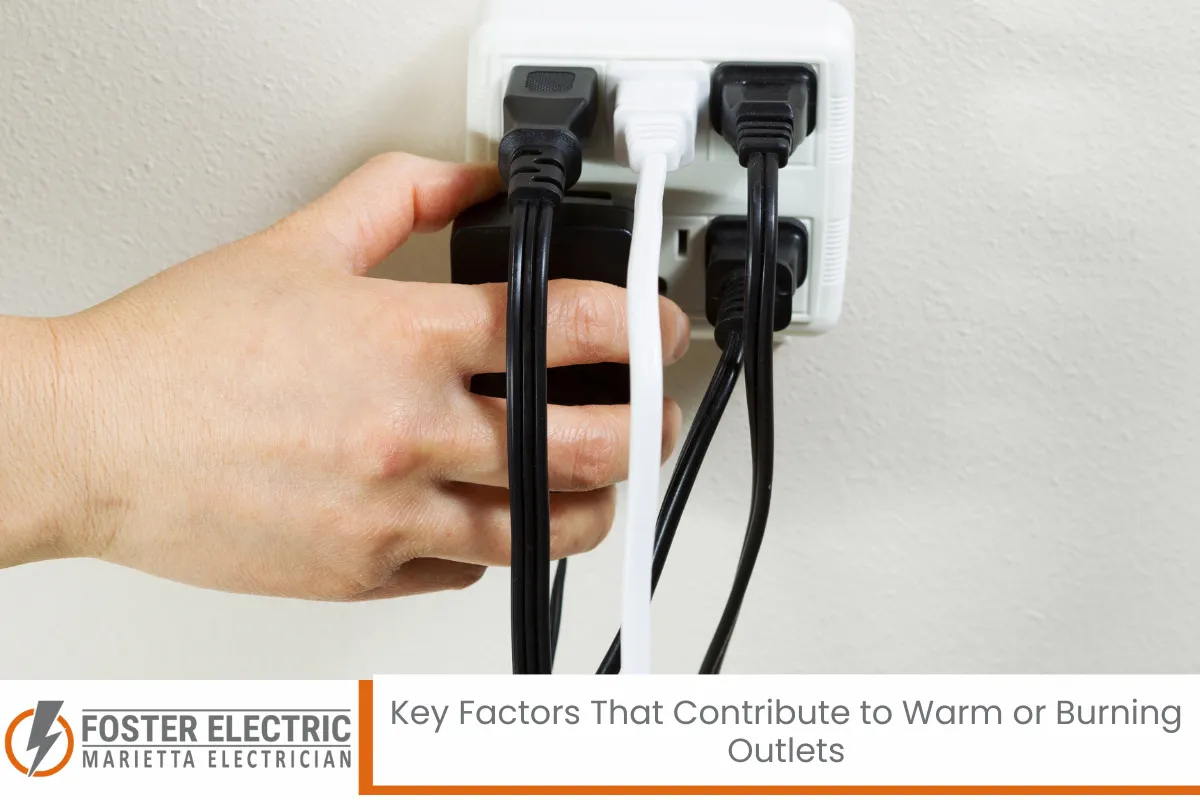
Overloaded Circuits in Marietta Homes
Overloading is a common issue in homes and businesses throughout Marietta, particularly in older buildings where electrical systems were not designed to accommodate the heavy electrical demands of modern appliances. With the increasing use of high-powered devices such as air conditioners, space heaters, and entertainment systems, many older electrical circuits struggle to handle the load. When the circuit is overloaded, it can cause the wiring to heat up, resulting in warm outlets and potential fire hazards.
In Marietta, where homes vary in age and electrical infrastructure, homeowners need to be mindful of the number of devices they plug into each outlet. If you are regularly plugging multiple devices into a single outlet or circuit, you may be putting unnecessary stress on the system.
Loose or Faulty Wiring in Outlets
Wiring issues are often a significant contributor to warm outlets and burning smells. Over time, electrical wiring can deteriorate, particularly in homes that have not undergone wiring upgrades in years. Loose wiring connections in outlets or junction boxes can create resistance in the circuit, which generates heat. If the wiring becomes frayed or damaged, it can lead to further problems such as electrical shorts and potential fire risks.
In Marietta, electrical wiring in older homes, especially those built before the 1980s, may not meet modern safety standards. If the wiring in your home is outdated or damaged, it can lead to overheating issues with your outlets.
The Dangers of Worn or Damaged Outlets
Outlets can wear out over time, especially if they are frequently used or subjected to heavy loads. When an outlet is old or damaged, it may no longer handle the electrical flow properly, resulting in overheating. The internal components of the outlet can also deteriorate, potentially causing sparks or even fire hazards.
In Marietta, it’s essential to inspect your outlets regularly and look for signs of wear, such as discoloration, cracks, or a warm sensation when you touch them. If you notice any of these signs, it’s crucial to replace the outlet immediately to avoid more serious electrical problems.
Signs You Need to Call an Electrician in Marietta

Persistent Warmth or Burning Smell
If your outlet continues to feel warm or emit a burning odor after you’ve unplugged devices, it’s time to call a licensed electrician. This could be a sign of an electrical issue that will not resolve on its own.
Flickering Lights or Tripped Breakers
Frequent flickering lights or circuit breakers that constantly trip are signs of underlying electrical issues, such as an overloaded circuit or faulty wiring. These are indications that your system is struggling and should be inspected by a professional.
Scorch Marks or Visible Damage
Any visible signs of damage, such as scorch marks around outlets, are clear indicators of serious electrical issues. This type of damage requires immediate attention to prevent further issues, including electrical fires.
Frequent Power Surges
If you experience frequent power surges or outages, your electrical system may not be functioning properly. A local electrician can help diagnose and fix the problem to prevent damage to your electronics and appliances.
What Happens If Electrical Issues Are Ignored?
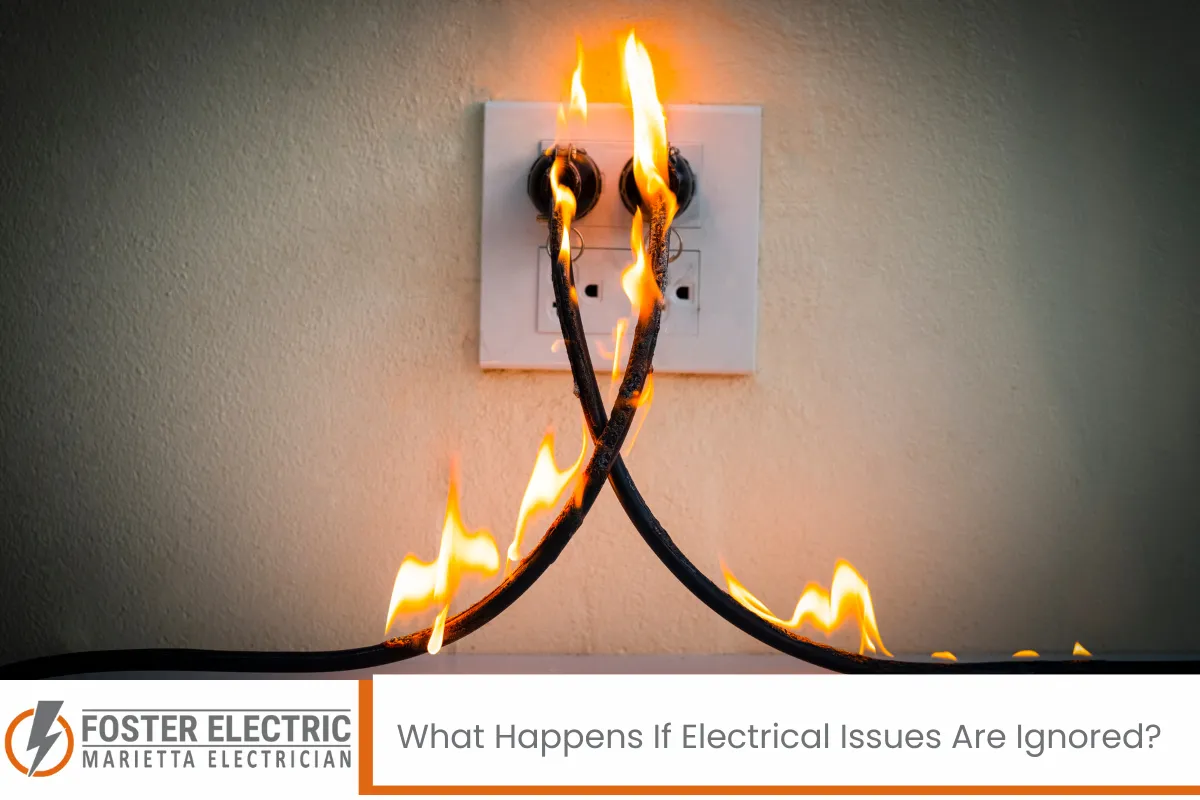
Ignoring electrical problems can lead to much more serious consequences. Over time, a seemingly minor issue, such as a warm outlet, can escalate into a potentially dangerous electrical fire. Malfunctioning wiring and outlets pose a significant fire hazard, and if left unaddressed, can result in extensive property damage and compromise your safety.
Electrical issues can also cause electric shocks, which can be fatal, especially if there is contact with faulty wiring or exposed outlets. Additionally, long-term neglect of electrical problems can damage appliances and electronics, resulting in costly repairs or replacements.
Preventative Measures for Electrical Safety
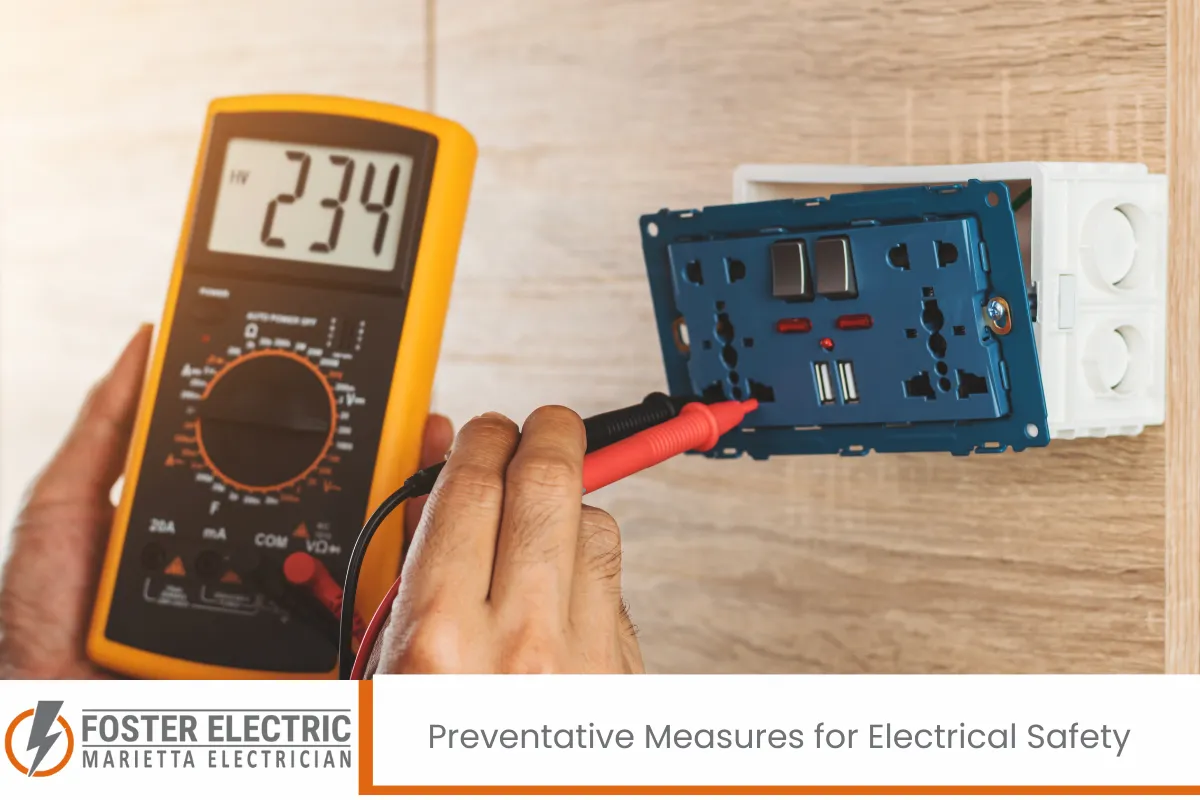
Regular Inspections
Have a professional electrician inspect your electrical system every few years to catch any problems early and ensure your home or business is up to code.
Upgrade Outdated Wiring
If you live in an older home, it’s wise to upgrade your wiring to handle the increased electrical demand of modern devices. This can prevent overheating and reduce the risk of fires.
Avoid Overloading Circuits
Be mindful of how many devices are plugged into each outlet. Avoid using power strips that are overloaded with multiple high-power devices.
Replace Damaged Outlets
If an outlet becomes damaged or worn out, replace it immediately. It’s a small investment that could prevent major issues down the line.
Ensuring Electrical Safety in Your Home or Business
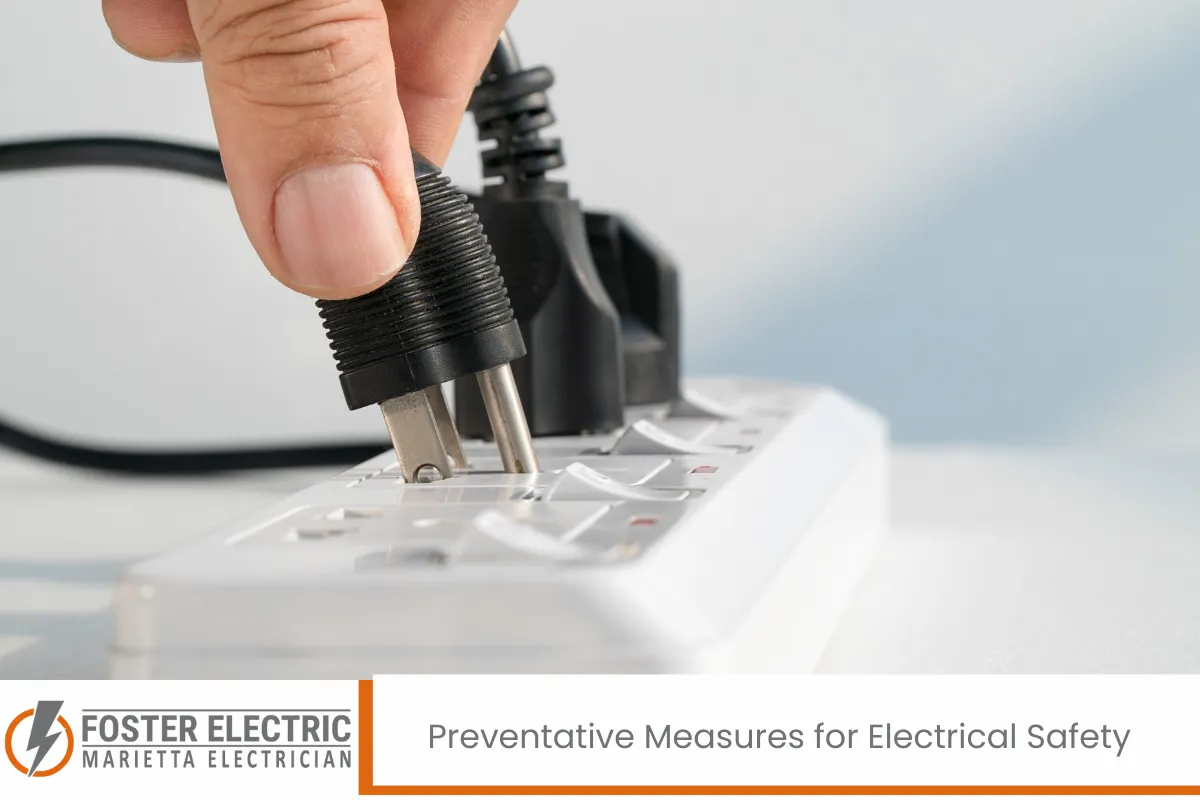
Electrical issues, such as warm outlets and burning smells, should not be ignored, as they can pose significant dangers to your home and family. From overloaded circuits to worn-out outlets, the problems causing these symptoms are often serious and require professional attention. Regular inspections and proper maintenance are essential to ensuring your electrical system remains safe and efficient.
Always trust a qualified electrician when dealing with any electrical issues. Never attempt to fix serious electrical problems yourself, as they can be hazardous if handled incorrectly. By staying proactive and addressing any concerns as soon as they arise, you can protect your property and loved ones from potential dangers.
Marietta Electrician – Foster Electric
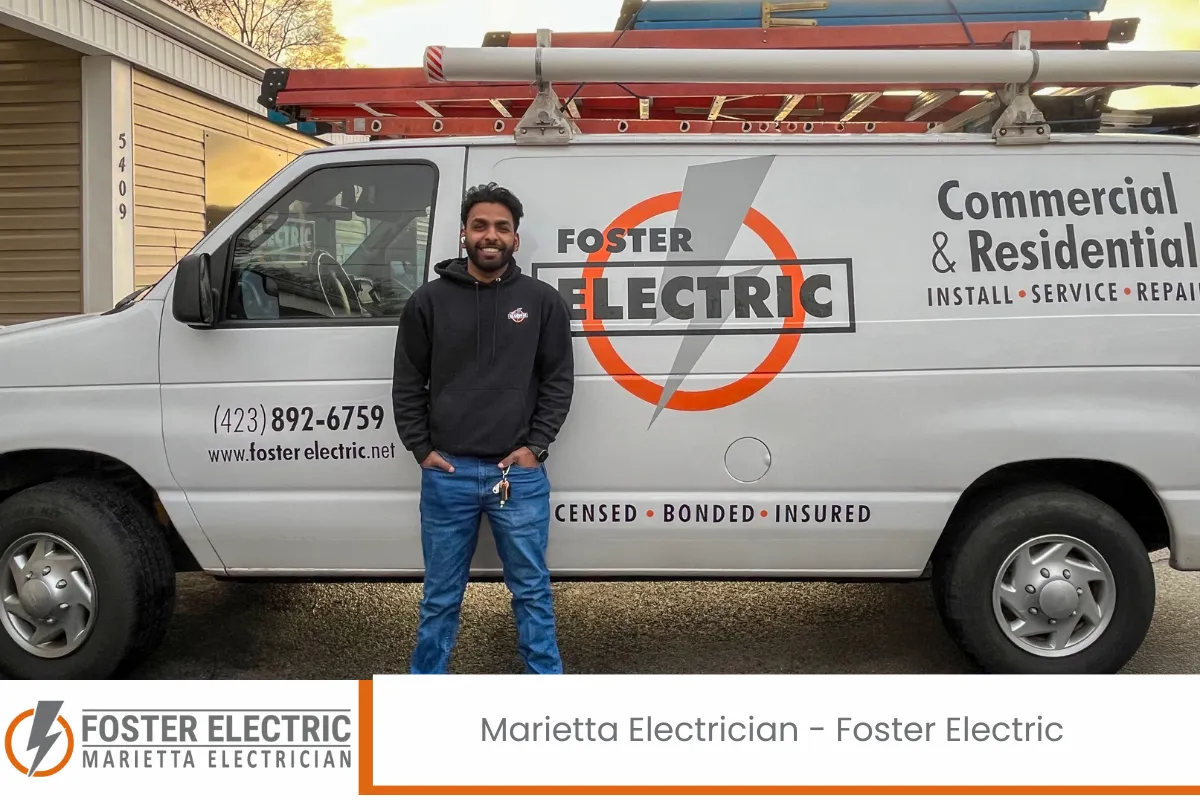
Looking for a reliable electrician in Marietta? Foster Electric is Marietta’s trusted electrical service provider, offering dependable solutions for both residential and commercial clients. With a team of experienced electricians, we offer top-quality services that range from new installations to repairs and maintenance.
For over 20 years, we have proudly served the Marietta community, ensuring your electrical system remains safe, efficient, and compliant with current codes. Don’t let minor electrical issues turn into major problems—contact us today at (404) 855-4797 to schedule your service!
FAQ: Common Electrical Issues and How to Address Them
What are the warning signs of an electrical fire?
Electrical fires can be devastating, but they often give early warning signs. Some common warning signs that you may have an electrical issue in your home include:
- Sparking outlets: If an outlet sparks when you plug in a device, it could indicate a serious problem with the wiring.
- Electrical burning smell: A burning smell near an outlet could be caused by overheating electrical components or loose wiring.
- Flickering lights: Flickering lights are often a sign of circuit overloads or faulty breaker trips that need attention.
- Discolored or warm outlets: A warm outlet or one that shows scorch marks could be overheating due to electrical overloads.
To avoid fire risks and safety hazards, it’s essential to address these issues promptly. Regular maintenance, like checking outlet covers and installing a GFCI outlet, can help prevent accidents. If you notice any of these safety risks, contact a licensed electrician for a full inspection.
What should I do if my outlets smell like burning?
If you notice a burning smell near your electrical outlets, it’s crucial not to ignore it. The electrical burning smell could be caused by overheating wiring or loose wiring, both of which can lead to electrical fires. Here’s what you can do:
- Unplug devices immediately: If an outlet is emitting a burning smell, disconnect any appliances or devices plugged into it to prevent further heat buildup.
- Inspect the outlet: Look for signs of damage, such as scorch marks or discoloration, around the outlet. These could be indicators of internal issues.
- Avoid using power strips: Power strips can contribute to circuit overloads, so unplug them and ensure the outlet is not overburdened.
- Call a professional electrician: If the burning smell persists, contact an experienced electrician to inspect the wiring and ensure your outlet box is safe.
Remember, safety hazards like this need professional attention to avoid potential electrical shock or fire hazards.
What are the common causes of outlet malfunctions?
Several factors can cause outlet malfunctions, and understanding them can help you prevent issues before they escalate. Some of the most common causes include:
- Loose wiring: Over time, loose wiring can cause intermittent electrical connections, leading to malfunctions and overheating.
- Electrical overloads: Circuit overloads are a leading cause of outlet issues. Plugging too many high-powered devices into one outlet can lead to a dangerous buildup of heat.
- Old or outdated outlets: Older homes may have aluminum wiring, which is more prone to deterioration and overheating than copper wiring.
- Exposed wiring: If wiring becomes exposed due to physical damage or aging, it poses a significant risk of electrical shock.
- Worn-out outlets: Overuse or aging can cause outlets to malfunction, resulting in improper handling of electrical loads and increasing the risk of fire.
It’s important to inspect your outlets regularly, and if you notice any of these safety risks, contact a licensed electrician to ensure your electrical system meets current safety standards.
What are GFCI outlets, and why are they important?
A GFCI outlet (Ground Fault Circuit Interrupter) is an essential safety feature in modern electrical systems. These outlets are designed to prevent electrical shock by detecting imbalances in the electrical current. If an imbalance is detected, the GFCI outlet quickly shuts off the power, reducing the risk of electrocution.
Here’s why GFCI outlets are crucial:
- Prevent electrical shock: They protect you from shock by detecting differences in current and cutting power to the circuit.
- Required in high-risk areas: GFCI outlets are often required in areas with high moisture, such as bathrooms, kitchens, and garages, where electrical fires and shocks are more likely to occur.
- Enhance home safety: Installing GFCI outlets reduces the likelihood of safety hazards, particularly in older homes with outdated electrical systems.
If you don’t have GFCI outlets installed in high-risk areas of your home, consider having an electrician install them to improve overall home safety.
What are the dangers of circuit overloads?
A circuit overload occurs when too many devices draw power from a single circuit, exceeding its rated capacity. This overload can create several safety risks and potentially cause electrical fires. Here are the main dangers associated with circuit overloads:
- Overheated wiring: Excessive current flowing through wiring can cause it to overheat, damaging insulation and increasing the risk of fire.
- Tripped breakers: Breaker trips are designed to shut off power during overloads, but if the circuit continually trips, it signals a potential hazard.
- Damage to electrical components: Electrical overloads can cause damage to appliances, wiring, and other electrical components, resulting in costly repairs.
- Increased fire risk: Continued circuit overloads can cause sparks or overheating, creating a fire hazard in the walls or outlets.
To prevent circuit overloads, avoid daisy-chaining power strips and ensure each outlet is not overloaded. If you suspect an overload, contact an electrician to assess your system and make necessary upgrades to your electrical infrastructure.
Read more: Common Fire Hazards in Old Wiring Found by Electricians in Elizabeth, Georgia

